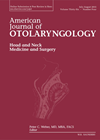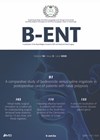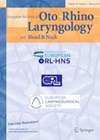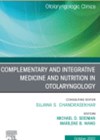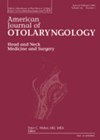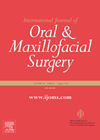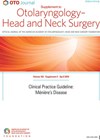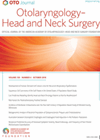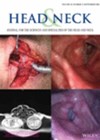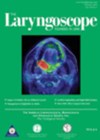
Journal Reviews
Does transoral robotic surgery improve outcomes among patients with head and neck cancer of unknown primary?
A tonsillectomy and tongue base mucosectomy is becoming increasingly accepted as the optimal surgical intervention to aid in identifying the primary source of a p16+ / HPV-related squamous cell carcinoma (SCC) of unknown origin, given that this disease almost exclusively...
Lymph node metastases in papillary thyroid cancer
This retrospective Korean cohort study looked at the risk factors associated with bilateral lateral lymph node metastases in patients with unilateral papillary thyroid cancer. There were 11 patients who met the inclusion criteria across an 11-year period from 2009 to...
Organoids in otolaryngology
This interesting review article summarises the status as well as future prospects of organoid technology in our field. Organoids are a mass of cells which are typically cultured in vitro with 3D technology. They simulate miniature tissues and organs and...
Make food thy medicine!
This is a useful paper emphasising how diet affects health and various ENT conditions. We have known for many years the power of food as medicine. We also know that what we eat can affect our bodies in multiple ways...
How do objective ratings of swallowing compare with patient-reported dysphagia QOL measures in the head and neck cancer population?
Swallowing may be assessed by a comprehensive battery of tools including instrumental/objective assessments, clinician-rated measures and patient-reported measures. The authors of this paper use secondary analysis to explore concordance between videofluoroscopy and a patient-reported dysphagia quality of life (QOL) measure....
Prophylactic gastrostomy tubes in advance of chemoradiotherapy for advanced head and neck malignancies – are they worthwhile?
It is well recognised that radical chemoradiotherapy (CRT) for head and neck cancers can significantly affect swallowing, especially if radiotherapy is delivered to the hypopharynx and/or both sides of the neck. As such, prophylactic gastrostomy tubes are often advocated in...
Speech predictors after glossectomy
This is a cross-sectional study from India where 69 patients were assessed for speech intelligibility and phonetics using an assessment tool in the local language. Volume defects were classified into thirds and the location of this defect noted. Not unsurprisingly,...
Treatment of internal carotid artery blowout with embolisation and bypass grafting (nasopharyngeal carcinoma)
Carotid artery blowout syndrome (CBS) occurs when there is rupture of the carotid artery causing massive epistaxis and bleeding through the oral cavity caused by tumour invasion, surgery, radiotherapy, or infection. This article proposes a revascularisation strategy for internal carotid...
Core biopsies are good enough for lymphomas
This paper, from the South of England, has reviewed ultrasound-guided core needle biopsies over a six-year period investigating the use of the detection of head and neck lymphomas. There were 367 samples included from 226 patients; 215 of the 226...
Narrow band imaging in the management of carcinoma of unknown primary
This was a retrospective study to assess the utility of narrow band imaging (NBI) in the detection of a primary site in carcinoma of unknown primary (CUP). Patients with CUP who underwent transoral robotic surgery (TORS) and preoperative imaging with...
Predicting the need for salvage laryngectomy
The treatment of laryngeal cancer has seen a shift towards organ preservation strategies with non-surgical treatment offering equivalent survival outcomes. Nonetheless, salvage total laryngectomy (SLT) remains an important curative management option in cases of treatment failure or recurrence. The authors...
Microvascular free flap failures – looking beyond surgical technique
Microvascular free flaps are commonly used in reconstruction for head and neck defects. Failures of these flaps, however, are associated with a significant morbidity and mortality. Flap failures within the first 72 hours are commonly attributed to technical failure of...

